Country profiles
This series of country profiles describe how countries have reacted to COVID-19 and specifically: (i) measures enacted by governments to contain the spread of the virus; (ii) policies to stabilize the functioning of agri-food systems; (iii) potential effects of policies on agri-food systems and vulnerable groups. Finally, they also assess longer-term options for agri-food system policies and investments so as to make them more resilient.
The series has been produced by the network of policy officers of the Food and nutrition security Impact, Resilience, Sustainability and Transformation (FIRST) Programme, in close collaboration with country governments, FAO representations and European Union Delegations. In some countries, FIRST has joined forces with the Global Network against Food Crises.
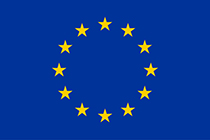
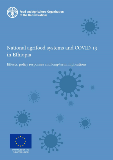
National agrifood systems and COVID-19 in Ethiopia
03/12/2021
This report describes: (i) policy measures enacted by the Government of Ethiopia to contain the spread of the virus; (ii) policies and measures to stabilize the functioning of agri-food systems; (iii) potential effects of policies on agri-food systems and vulnerable groups. Finally, the profile also assesses longer-term options for agri-food...
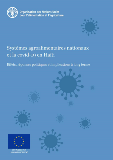
Systèmes agroalimentaires nationaux et la covid-19 en Haïti
02/11/2021
L'épidémie de la covid-19 montre à la fois les liens entre les systèmes de santé et les systèmes alimentaires, et les liens entre les systèmes alimentaires locaux et les systèmes mondiaux. Les taux élevés d'urbanisation et la mondialisation du commerce et des voyages ont contribué à la propagation du virus...
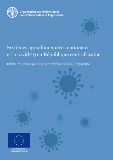
Systèmes agroalimentaires nationaux et la covid-19 en République centrafricaine
02/11/2021
Ce rapport fait partie d’une série de profils de pays qui décrivent: (i) les mesures politiques adoptées par les gouvernements pour contenir la propagation du virus; (ii) les politiques et mesures visant à stabiliser le fonctionnement des systèmes agroalimentaires; (iii) les effets potentiels des politiques sur les systèmes agroalimentaires et...
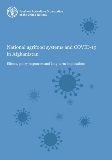
National agrifood systems and COVID-19 in Afghanistan
14/06/2021
The COVID-19 pandemic has disrupted lives and livelihoods throughout the world, particularly in vulnerable and resource-poor countries with insufficient coping capacities. Protracted conflict and insecurity, limited health care services, high rates of poverty and food insecurity, poor education services, and gender disparities are some key factors that have made Afghanistan...
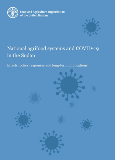
National agrifood systems and COVID-19 in Sudan
31/05/2021
This report describes: (i) policy measures enacted by the Government of Sudan to contain the spread of the virus; (ii) policies and measures to stabilize the functioning of agri-food systems; (iii) potential effects of policies on agri-food systems and vulnerable groups. Finally, the profile also assesses longer-term options for agri-food...
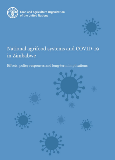
National agrifood systems and COVID-19 in Zimbabwe
31/05/2021
This report describes: (i) policy measures enacted by Zimbabwe to contain the spread of the virus; (ii) policies and measures to stabilize the functioning of agri-food systems; (iii) potential effects of policies on agri-food systems and vulnerable groups. Finally, the profile also assesses longer-term options for agri-food system policies and...
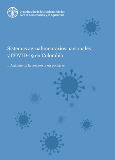
Sistemas agroalimentarios nacionales y COVID-19 en Colombia
31/05/2021
El presente documento representa el primero de una serie de cuatro informes que pretenden brindar un análisis sistemáticos y periódicos sobre los efectos de la COVID-19 en la ruralidad y los sistemas agroalimentarios de Colombia, a partir de la información secundaria disponible, que sirvan de insumo y brinden de manera...
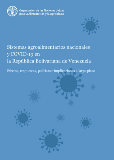
Sistemas agroalimentarios nacionales y COVID-19 en Venezuela
31/05/2021
La pandemia de la COVID-19 ha sometido a los sistemas sanitarios de todo el mundo a una presión significativa. Las drásticas medidas adoptadas para contener su avance están creando serios obstáculos para la actividad económica (incluidos los sistemas agroalimentarios) y, en consecuencia, para los medios de vida y la seguridad...
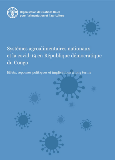
Systèmes agroalimentaires nationaux et la covid-19 en République démocratique du Congo
31/05/2021
En République démocratique du Congo (RDC), la pandémie de covid-19 est documentée à partir du 10 mars 2020, date à laquelle un premier cas a été confirmé sur le territoire national. La République démocratique du Congo devenait ainsi le onzième pays africain à être officiellement touché par la pandémie de...
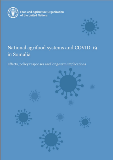
National agrifood systems and COVID-19 in Somalia
11/03/2021
Somalia is highly vulnerable to shocks due to its fragile political and environmental circumstances. This vulnerability is aggravated by structural weaknesses that intensify the impact of the recurrent shocks and hinder recovery. The pandemic exposed pre-existing structural factors that challenge the capacity of SMEs, livestock exporters, hospitality, logistics and supply...
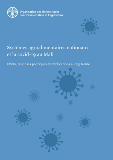
Systèmes agroalimentaires nationaux et la covid-19 au Mali
11/03/2021
Ce rapport décrit: (i) les mesures politiques adoptées par le Gouvernement pour contenir la propagation de la covid-19; (ii) les politiques et mesures visant à stabiliser le fonctionnement des systèmes agroalimentaires; (iii) les effets potentiels des politiques sur les systèmes agroalimentaires et les groupes vulnérables. Enfin, ce profil évalue également...
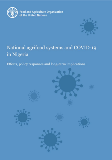
National agrifood systems and COVID-19 in Nigeria
11/03/2021
Some parts of Nigeria are facing an increasingly grave humanitarian crisis. It is likely that the COVID-19 pandemic has exacerbated an already critical food security situation in many States. Also, a number of structural factors have a strong potential for exacerbating the impact of the pandemic on food security, nutrition...
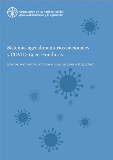
Sistemas agroalimentarios nacionales y COVID-19 en Honduras
11/03/2021
Este informe describe: (i) las medidas y políticas adoptadas por el Gobiernopara contener la expansión del virus; (ii) las medidas y políticas para estabilizar y garantizar el funcionamiento de los sistema agroalimentarios; (iii) los posibles efectos de dichas políticas sobre los sistemas agroalimentarios y los grupos más vulnerables. Finalmente, los...
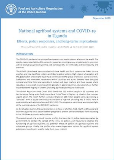
National agrifood systems and COVID-19 in Uganda
23/11/2020
The Government of Uganda has established a national incident management structure under the Office of the Prime Minister (OPM) to provide a coordinated response to the COVID-19 crisis. While the central government has demonstrated its capacity to lead the fight against the pandemic, local governments have demonstrated limited capacity to...
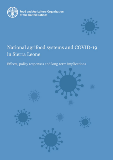
National agrifood systems and COVID-19 in Sierra Leone
23/11/2020
The Republic of Sierra Leone reported its first confirmed case of COVID-19 on 31 March 2020. Although this was later than many countries in the region, the number of cases and deaths in the country have risen since then. As of 28 August 2020, there were a total of 2...
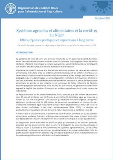
Systèmes agroalimentaires nationaux et la covid-19 au Niger
23/11/2020
Dès le 13 mars, au regard de la vitesse de propagation de la maladie dans le monde et de la faiblesse des systèmes de santé à y faire face, le Gouvernement de la République du Niger a jugé impérieux d’être proactif et de ne pas attendre que la maladie s’installe...
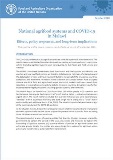
National agrifood systems and COVID-19 in Malawi
23/11/2020
Malawi acted early,declaring a national emergency on 20 March 2020, before the first case was officially reported on 2 April. One of the last countries in Africa to confirm the presence of the disease, Malawi followed the precedent set other countries by implementing early containment measures after only four cases...
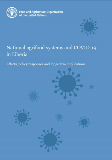
National agrifood systems and COVID-19 in Liberia
23/11/2020
When the pandemic began, the National Incident Management System (IMS) was activated under the central command of the MoH. Immediately after detecting the index case, the government declared a health emergency. The MoA called an emergency meeting of the Agriculture Donor Working Group, requested the establishment of a food security...
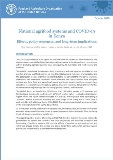
National agrifood systems and COVID-19 in Kenya
02/11/2020
This report describes: (i) policy measures enacted by the Government of Kenya to contain the spread of the virus; (ii) policies and measures to stabilize the functioning of agri-food systems; (iii) potential effects of policies on agri-food systems and vulnerable groups. Finally, the profile also assesses longer-term options for agri-food...
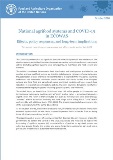
National agrifood systems and COVID-19 in ECOWAS
02/11/2020
All governments of the Economic Commission of West African States (ECOWAS) member States have taken measures to contain the spread of COVID-19 and limit the harm that the pandemic could inflict on the region. All member States have adopted more or less similar measures, albeit with different timelines. The main...
